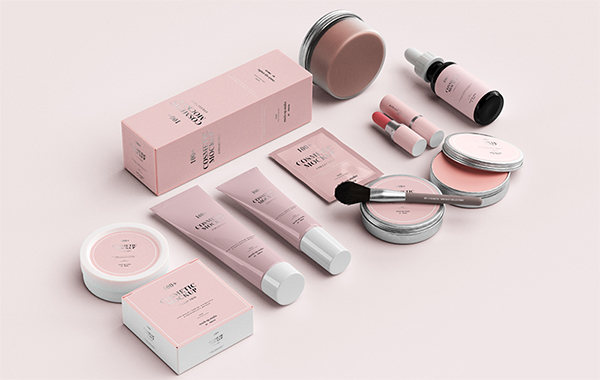In 2022, research found that ecommerce sales for beauty brands are twice as high as pre-pandemic levels. Other reports predict that the global beauty market is set to grow by nearly 7% year-on-year, with a starting point of $100 billion in worldwide revenue recorded in 2022.
One of the key driving factors behind the industry’s post-Covid recovery is innovation, particularly in cosmetics. Let’s take a look at just a few of the game-changing trends and products which are shaping cosmetics as we know it:
Hyper-personalisation in skincare through the microbiome
Brands such as L’OREAL are going all-out in researching solutions for hyper-personalisation through microbiome cosmetics. For the uninitiated, this involves testing DNA and the skin’s bacterial makeup in order to develop products customised to each customer type’s ‘microbiome’. Products broadly fall under three categories – prebiotics, probiotics or post-biotics. This trend is also the focus of a number of startups, including Cryosmetics and Sage & Ylang.
Fermented beauty products
This is a trend which has been coming for some time. Research by Mintel found that 28% of all skincare products launched between 2018 and 2019 contained at least some fermented ingredients. The thinking is that by fermenting certain organic ingredients (via the action of enzymes secreted by microorganisms), it’s possible to make them far more powerful.

Water-free cosmetics
With sustainability and carbon reduction high on the agenda for many cosmetics companies, waterless products are becoming more and more common. Substitutions include butters, oils, waxes and other oil-soluble active ingredients.
Leaders (or at least the most prolific patent filers for waterless cosmetics) include L’OREAL, Unilever, Procter & Gamble and Estee Lauder. It’s predicted that the global water-free cosmetics market will hit $31 billion by 2031.
CBD skincare
A surge of new interest in CBD within the beauty industry has coincided with the easing of government restrictions in many products. CBD is the active ingredient in cannabis but which doesn’t contain the psychoactive ingredient THC.
CBD cosmetics are starting to emerge in a number of global markets, leading to a jump in market growth of 21% since 2013. These products can offer a number of benefits, according to brands. This includes healing acne and rosacea, rejuvenating dull skin and providing anti inflammatory and anti-oxidant qualities.
Makeup in the metaverse
There’s been lots of hype about the advent of the metaverse over the last year, and a number of beauty brands have sensed a potentially lucrative opportunity to get in there early. The potential of the virtual internet to enhance the consumer experience and sell products is huge.
Brands such as MAC Cosmetics have partnered with game makers to launch limited in-game lipstick collections, while live virtual shopping events are huge in countries such as China right now. Some brands are experimenting with virtual makeup testing via augmented reality, while others are looking into creating NFTs in the metaverse.
If you’re looking to innovate in 2023, you’ll need the best and brightest people on your team. Hire with Lavandi Talent – get in touch to start your search.
Looking for a new job? You can also search latest vacancies here.
Lavandi Talent have just moved into a new office in Manchester city centre and we have a brand new website so please check out our new website to see our team and also all our current vacancies www.Lavandi-talent.com
